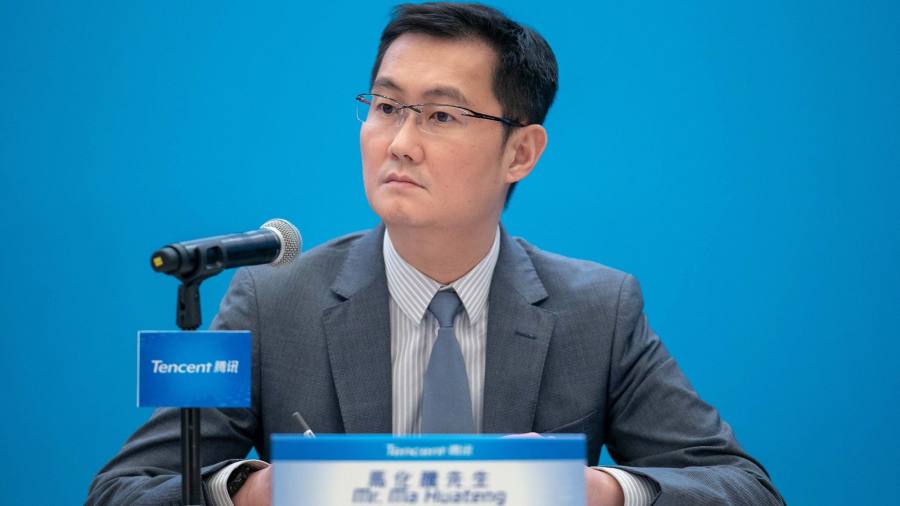Tencent boss Pony Ma left out of China’s signature political gathering

Tencent founder Pony Ma has been left off a list of delegates to China’s annual parliamentary session this week as the country’s most prominent tech leaders lose sway in Beijing.
His absence from the signature National People’s Congress is another sign of changing times for China’s entrepreneurs. The sidelining comes after China’s leader Xi Jinping consolidated power last year with a third term at the helm of the Communist party and embarked on a campaign to limit the influence of the country’s wealthy elite.
Ma’s longtime rival for China’s tech crown, Alibaba founder Jack Ma, has largely disappeared from public view since criticising Chinese regulators two years ago and has recently been living outside China, including six months in Tokyo.
Tencent is China’s most valuable company by market capitalisation, with businesses spanning gaming, ecommerce, social media and entertainment. Ma remains its chair and chief executive.
His exit from the NPC’s ranks, after two five-year terms, follows other internet titans’ departure from the Chinese People’s Political Consultative Congress, an advisory body that also meets starting from the weekend.
Robin Li, head of search giant Baidu, William Lei Ding, founder of gaming group NetEase, and Wang Xiaochuan, head of internet portal Sogou, all stepped down as CPPCC delegates, as did China’s leading venture capitalist Neil Shen.
Duncan Clark, founder and chair of Beijing-based consultancy BDA, said that previously at the NPC Tencent’s Ma “could play the discreet counterweight to the brash, ambitious Alibaba Ma”.
“But then the whole tech sector came into the government’s crosshairs. Given the trend of the party running everything, it doesn’t make sense to have such legacy figures in high-profile roles anymore,” he said.
Delegates to the NPC and the CPPCC are selected every five years based on candidate lists drawn up by the Communist party, with those attending this month’s meetings set to serve for the duration of President Xi’s third term in office.
“Re-election to the body is a matter of public opinion,” said a professor at the Central Party School, the party’s elite training institution, who asked not to be named. “For Ma and the others it is probably that their influence and political standing has declined, leading to them not being re-elected.”
Ma had served as an NPC deputy since 2013 and had used the platform to call for tighter regulation of internet businesses such as his own in 2021 as Beijing’s tech crackdown was gaining steam.
Among the ranks of almost 3,000 NPC delegates are many executives and engineers from China’s hard tech industry, including semiconductor and artificial intelligence firms.
Liu Qingfeng, chair of iFlytek, a partially state-owned AI group, has served on the NPC for more than 20 years and was re-elected to another term this year. Lei Jun, head of phonemaker Xiaomi, is also serving for a third term.
Other newcomers to the ranks of delegates hail from sectors that Beijing is determined to strengthen amid growing technological rivalry with Washington.
Guo Huiqin, an engineer at China’s largest chipmaker Semiconductor Manufacturing International Corporation, said she hoped to focus “on breakthroughs” in technological areas where the west had a chokehold on China’s development.
“We need to uphold the party’s leadership . . . [and] we need self-reliance and self-improvement in science and technology,” Qi Xiangdong, a newly elected delegate to the CPPCC and head of cyber security group QAX, told local media.
Tencent did not respond to a request for comment.
Additional reporting by Cheng Leng in Hong Kong
Share this news on your Fb,Twitter and Whatsapp
Times News Express:Latest News Headlines
Times News Express||Health||New York||USA News||Technology||World News